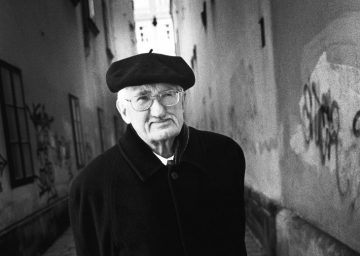 Thomas Meaney in The New Statesman:
Thomas Meaney in The New Statesman:
In a country where anniversaries are drawn-out affairs, the 90th birthday of the leading German philosopher, Jürgen Habermas was not going to pass unmarked. The newspaper Die Zeit dedicated a supplement to accolades; cultural ministers brushed up on his backlist. His lecture at Goethe University Frankfurt in June was delivered in front of as many as 3,000 people. It brought back memories for the older audience members: the philosopher made his name there as Theodor Adorno’s assistant, sculpting his arguments in front of students who had been shorn of any utopian commitments by the Second World War – or, later, against students who took their utopian visions beyond what he thought was called for.
Still agile at the lectern, his black sneakers crossing back and forth, switching between two pairs of spectacles, Habermas did not disappoint his audience. Did his audience disappoint him? Perhaps. Instead of the torrents of applause, you sensed he would have preferred a bright undergraduate to have stood up and asked a question. The most apposite birthday gift may have been delivered by Habermas’s publishing house, Suhrkamp Verlag, which published a richly detailed study of his early thought by a young historian born in the GDR.
More here.
